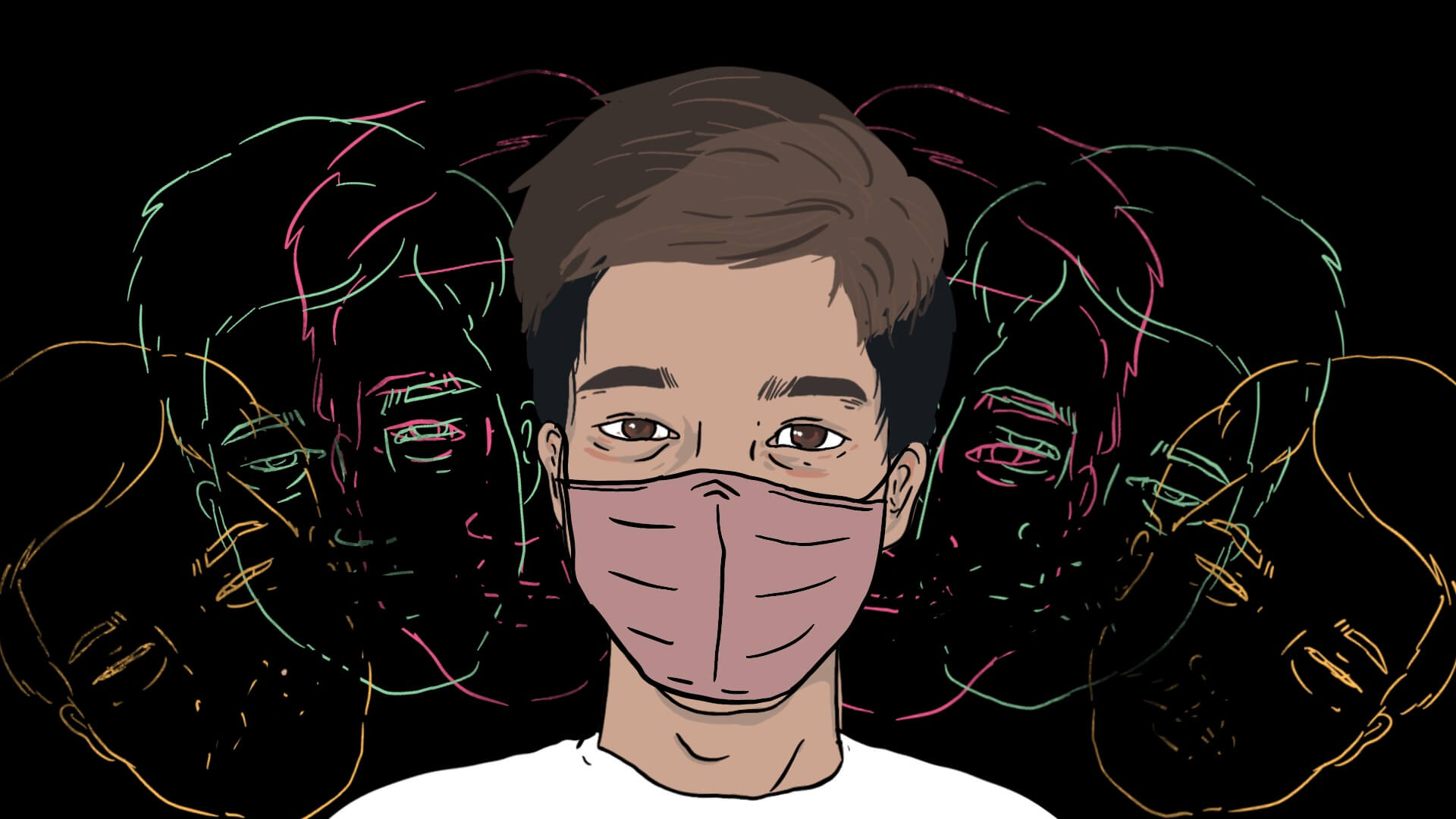“The flashbacks of my friends who got killed and smoke grenades haunted me every day.”
By Sippachai Kunnuwong for Fortify Rights. Illustration by Tams Lu.
Just days after Myanmar’s military coup on February 1, 2021, Moe Thar* quit his stable jobs at a Japanese language school and a restaurant and joined the anti-junta protests. For the 24-year-old, who identifies as gay, Hledan Street in downtown Yangon became his battleground against the Myanmar military.
“After the coup, my life fell into darkness,” Moe Thar told Fortify Rights. “I did everything I could to oppose the dictatorship.”
He was not alone.
In the initial months following the coup, the streets of Yangon brimmed with thousands of protesters, and Myanmar’s LGBTI+ community was among those at the forefront.
“It was beautiful seeing the LGBT community actively participating in the protests,” Moe Thar said. “The perception [of the LGBTI+ community in Myanmar] may be changed by this.”
Speaking of his hope for the future, Moe Thar said, “I believe if our revolution wins, the people will have a different mindset about us, and [the next government] will advocate for our rights too.”
However, the junta’s deadly crackdown on activists forced Moe Thar to flee Myanmar before the revolution could be realized.
“The day I couldn’t forget”
“I almost got caught twice,” Moe Thar told Fortify Rights, describing the dangers involved in protesting the Myanmar junta, “[One time], I was chased by one police officer. While I was running, I ran into an old lady and fell. The police almost caught me and tried to beat me. I managed to push the police and ran away.”
Describing his second escape from the junta, he said, “And after I left Yangon, the authorities came to the place I was hiding. If I stayed there a few hours more, I would have been caught.”
But some of his friends were not as lucky.
“[On February 28, 2021], my friend, Nyi Nyi Aung Htet Naing, was shot in the head by security forces,” Moe Thar recalled. “He laid unconscious on the street. We tried to drag his body out of the scene but couldn’t. He later died at the hospital. Two friends who were helping him got shot in the shoulders as well, and they were maimed. It was the day that I couldn’t forget.”
“Am I wrong?”
Growing up gay in Myanmar, Moe Thar reflected on his struggles before the coup, saying: “Life was difficult for the LGBT people in Myanmar. Some people think that being gay is against nature and a sin.”
He elaborated, saying, “Myanmar society doesn’t accept LGBT people. I still haven’t come out to my family. They are shy of [having a gay child]. They think if you are a boy, you should marry a girl. If you choose the opposite, you do not belong.”
“We are also human, but sometimes I think, am I wrong?” he asked. “No one should be able to decide what I could be,” he added.
“I respect people who came out before me,” Moe Thar said, recognizing the path paved by others for LGBTI+ rights in Myanmar. But also contemplated the bleak outlook for LGBT rights if the junta stays in power, saying: “The reason most people in Myanmar behave in such ways is that Myanmar’s education system ismanipulated by the military. If the military continues its reign, I have no hope [discrimination against the LGBT community] will improve.”
“I am not allowed here.”
After fleeing Yangon, Moe Thar took refuge in the jungles of the Myanmar-Thailand border.
Describing how life in the jungle and trauma from the coup traumas took a toll on his health, both physically and mentally, he said: “The flashbacks of my friends who got killed and smoke grenades haunted me every day. I couldn’t sleep. I get headaches all the time. This led to my heart condition. And I didn’t have food for many days. My stomach started to go bad.”
In need of urgent medical treatment, Moe Thar crossed the border to Thailand in early 2022.
However, Thailand does not recognize or provide legal status to refugees, and refugees face arbitrary arrest and detention by Thai authorities. Since his arrival, Moe was arrested twice by the Thai authorities for his undocumented status.
Describing his fear of the Thai authorities, Moe Thar told Fortify Rights:
During the day, I’m afraid of the Thai police . . . My biggest fear is that I will be arrested and deported back to Myanmar. I’m afraid to go out. Today, I had to cancel the doctor’s appointment because we heard rumors that the Thai police were going to do a surprise check and might arrest [undocumented migrants] at the clinic.
Moe Thar told Fortify Rights how he relies on donations for his survival in Thailand, saying, “Since I arrived in [Thailand], I lost all financial support. Right now, I’m facing late rent and debts . . . Some Burmese migrant workers have been looking [out] for political refugees who have crossed the border.”
“I want to work [in Thailand] to earn my living because I have to care for many things,” he added. “But I am not allowed here.”
Reflecting on his situation, Moe Thar told Fortify Rights, “I cannot go back to Myanmar. The military will arrest me because of what I did . . . When comparing the situation in [Thailand] and Myanmar, most things are not different. I can’t sleep peacefully at night.”
*Moe Thar is not a real name. It is withheld due to security concerns.



